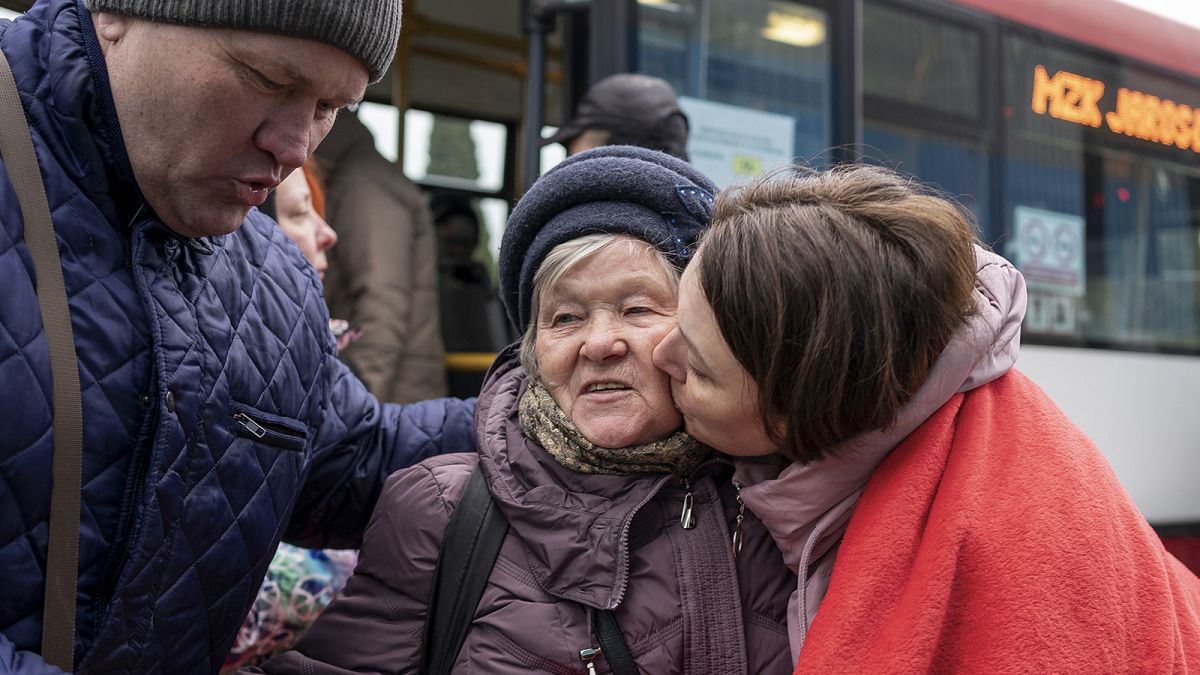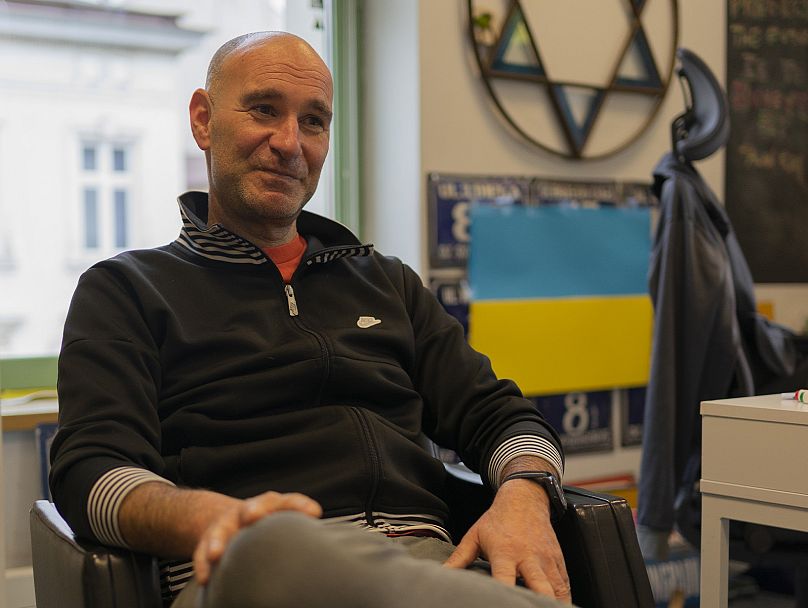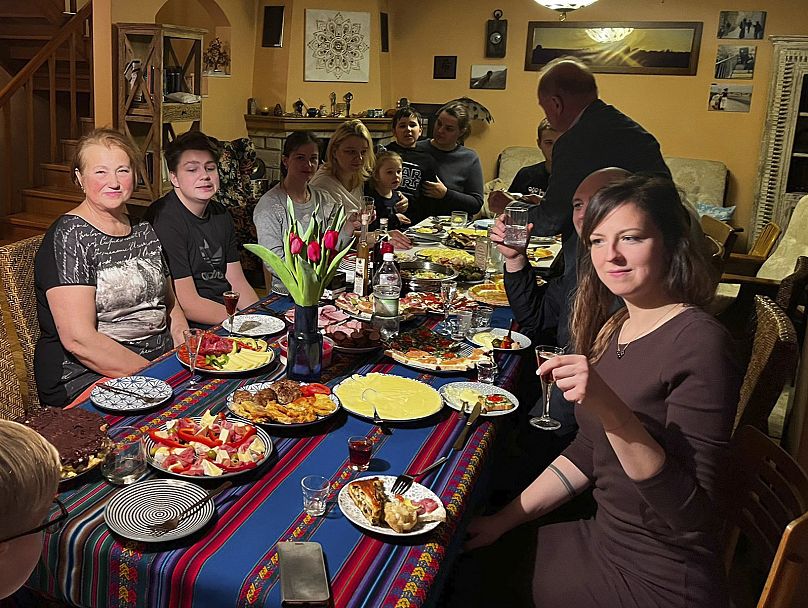“I didn’t know how many people, I didn’t know who was arriving -- I just said yes,” said Alina Sobczak.
Poland, which shares a long border with Ukraine, has taken the brunt of the refugees fleeing Russia's invasion of their southern neighbour.
Among those mobilising to help is Poland's Jewish community.
With a not-so-distant history of being both displaced and seeking refuge, Jewish people in Poland are acutely aware of what it is like to be in Ukrainians' shoes.
Take for example Alina Sobczak, a pediatric emergency doctor in Krakow. When she received a call from a colleague asking if her house was available to host refugees from Ukraine, she immediately accepted.
“I didn’t know how many people, I didn’t know who was arriving -- I just said yes,” explained Sobczak.
Within hours, 17 refugees were at her doorstep, carrying the few belongings they were able to take with them as they fled the war in Ukraine.
'You never know what tomorrow will bring'
It was in 1917 that Sobczak's Jewish grandparents fled their native Russia to Kazakhstan, where her mother was born. From there, parts of her family were split up even further, some leaving for China and others immigrating to the US.
She explains that not too much is known about the horrors her family faced because her grandparents refused to speak about it, while her parents were too afraid to ask them. It is unclear, for example, if they fled before or after the October revolution of 1917. What was clear is that her grandparents were traumatised from the experiences that they had.
“Every evening, my grandmother would cut bread and put it into bags in case she needed to run away,” Sobczak said.
“I was raised with people who had the trauma of war. And they always educated me to be thankful for what you have because you never know what tomorrow will bring.”
Sobczak believes it is both this personal connection to the horrors of war and her exploration of the Jewish faith and theology that has led her to host these refugees in her home -- a sense that is echoed by others in Krakow’s Jewish community.
Jonathan Ornstein, the executive director of the Jewish Community Center of Krakow, has had his team focus their energy on turning the centre into a donation and an information point for both Ukrainians looking for help and Poles looking for ways to help them.
“As soon as we heard of the refugees crossing the border, we went to [a furniture store] and bought a bunch of mattresses in case people needed to sleep in the centre,” Jonathan said.
Although they have not had to use the centre as a shelter, he estimates that they have helped place around 220 people in hotels and other housing.
“There’s this idea in Judaism of ‘once we were strangers’ and we’re very mindful of that,” Jonathan explained. “We have collective memory of being 'the other,' of being strangers, and we are trying to do what we can to take care of them, both Jews and non-Jews.”
Poles fear 'this might be us' as Russia threatens Poland, too
In the past weeks, the Polish government has come under criticism for what has been seen as a double standard in treating refugees from Ukraine versus those who arrived from non-European countries like Syria or Afghanistan.
Despite the government’s stance on the latter, Sobczak says that if she had the opportunity to host people from Syria, she would have done it.
For the moment, the number of refugees in Sobczak's home has gone down to nine people -- mostly children and mothers with several teenage boys.
Sobczak says the children were just told that they were going on a trip to Poland, and she doesn’t believe they fully understand what is happening.
The teenagers on the other hand have access to social media and continue to watch videos of their country being attacked by Russian forces.
As the war enters its second month, the future of the war remains uncertain. Sobczak says that her house will remain open to as many people as she can host, but she worries that with Russian threats against Poland, she too might have to flee.
“I am also asking myself, maybe I will be in the same situation,” Sobczak explained.
“Hopefully not, but we all have this fear looking at the Ukrainian refugees that maybe in a couple of weeks this will be us having to just pack and run away to save our children.”


